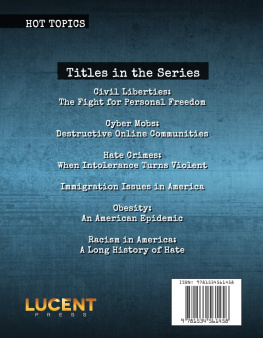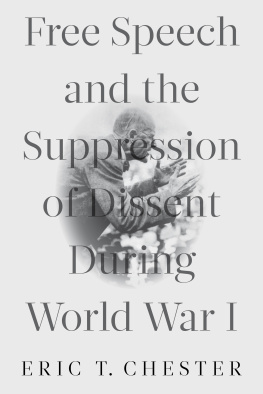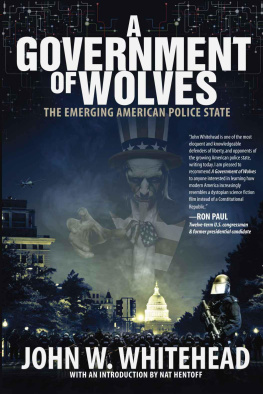


Copyright 1964 by Vance Packard.
Introduction Copyright 2014 by Rick Perlstein.
All rights reserved.
10 9 8 7 6 5 4 3 2 1
No part of this book may be used or reproduced in any manner without written permission of the publisher. Please direct inquires to:
Ig Publishing
392 Clinton Avenue
Brooklyn, NY 11238
www.igpub.com
Library of Congress Cataloging-in-Publication Data
Packard, Vance, 1914-1996.
The naked society / Vance Packard ; [introduction by] Rick Perlstein.
pages cm
Originally published: New York : David McKay, 1964.
ISBN 978-1-935439-86-8 (ebook)
1. Liberty. 2. Privacy, Right of--United States. 3. Freedom. 4. Privacy, Right of. I. Title.
JC599.U5P36 2013
323.490973--dc23
2013020662
To Harriet F. Pilpel with admiration and gratitude
CONTENTS
BY RICK PERLSTEIN
There is nothing worse than dated social criticism. So when the good folks at Ig Publishing invited me to write this introduction, my initial reaction was skepticism. What could a jeremiad about the epidemic of Americans spying on one another, published in 1964thirty years before the invention of the Internet, thirty-seven years before 9/11, written in an age when the gravest insults to civil liberties consisted of congressional committees asking Are you now, or have you ever been, a member of the Communist Partyhave to say to us now?
I picked up an ancient paperback copy of The Naked Society (The explosive facts behind the hidden campaign to deprive Americans of their rights to privacy. Heres how snoop devices are being employed by Big Government, Big Business, and Big Educaiton in their sneak attack on YOU.). I began reading. I was in New York CityPenn Station, to be exact. I read Packards framing questions: Are there loose in our modern world forces that threaten to annihilate everybodys privacy? And if such forces are indeed loose, are they establishing the preconditions of totalitarianism that could endanger the personal freedom of modern man? As I read this, I happened to notice a TV screen. Horrifying, apocalyptic images of buildings collapsing and shadowy terrorists alternated with messages like, If you see anything suspicious report it to an Amtrak employee. And, Its nothing, you think. Can you be sure? After all: It doesnt hurt to be alert.
I began reading with renewed, then steadily mounting, interest, my mind buzzing as the parallels between then and now presented
Then: welfare inspectors in Kern and Alameda Counties, California, stage late-night raids on 500 houses to investigate whether there is a man living in the household so they can cut off relief. Now: bills in states including Kansas, Texas, Arkansas, North Carolina, West Virginia, Florida, and Wyoming propose drug tests for welfare recipients (Republicans in Congress have introduced bills to submit recipients of both welfare and unemployment insurance to drug tests), and state legislators in Tennessee consider a law to kick families off welfare if their kids get bad grades.
Then: In cities where wiretapping was known to exist there was generally a sense of insecurity among professional people and people engaged in political life. Prominent persons were constantly afraid to use their telephones despite the fact that they
Then: Packard writes of his horror that cabled TV will allow the possibility of getting an instantaneous readout home by home of what millions of people are [watching] in the entire country in about fifty seconds. Now: regarding the cables that connect our computers to networks of servers around the world, there have been too many horror stories to count, and more on that below. Then, In some instances undercover men have been sent into plants to report on workers attitudes toward the union that is recognized or is seeking union recognition, and to report on union strategy; in one case a detective insinuated himself so effectively into a textile plant the rank and file voted him onto the employee bargaining community. Nowwell, too many horror stories to count on the labor front, too, but a great place to start is Human Rights Watchs 215-page report Discounting Rights: Wal-Marts Violation of U.S. Workers Right to Freedom of Association on how the worlds largest corporation and its owners violate their employees basic rights with virtual impunity.
By now you get the point. I have no doubt whatsoever that this is a book that should be read, and carefully. This runaway bestseller in its own time indicts usnot just because the privacy crisis that began taking shape in Packards own time has grown so much worse, but because nobody any longer writes bestsellers about it. Re-reading The Naked Society can help us understand why.
II.
Vance Packard was born in 1914 in Granville Summit, Pennsylvania and raised in nearby State College, where his dad was a superintendent at the Penn State University farm. He majored in English there and worked for the literary magazine, earned a masters degree in journalism from Columbia University, and entered the newspaper business, eventually becoming a feature writer for the Associated Press, then a freelance magazine writer focusing on social science and human behavior.
He is of medium height, medium age, talks slowly, loses the thread of what he is saying, regains it, acts on the whole like a professor at a small college a little unsure of tenure and with an important lecture coming up with the president in attendance. At the typewriter he is something else again.)
Packards successive books, The Status Seekers (1959); under the gloss of prosperity, it argued, society was becoming more and more corroded by new ways to draw lines that will separate the elect from the non-elect), and The Waste Makers (1960). an expos of the systematic attempt of business to make us wasteful, debt-ridden, permanently discontented individuals which presciently foregrounded environmental concerns) were also number one bestsellers, an extraordinary run. It was around that time that Betty Friedan heard Packard lecture and decided to turn the magazine article she was planning based on a questionnaire she circulated to her fellow members of Smith Colleges Class of 1942 on their experiences since graduation into the book which became The Feminine Mystique.
Packards work, in fact, heralded a golden age of American social criticism that played an outsized role in shuddering the country out of the somnolent fifties. The conventional wisdom, as the sixties began, was stated by the nations young president in 1962: that most of the days problems are are problems, administrative problemsthat is to say, not really problems at all. As I wrote in my book on the period, Before the Storm, those few writers who demurred were spending most of their energy begging people to acknowledge that serious social problems existed.
Three masterpieces of left-wing social criticism appeared around the same time in 1962 and 1963, the year before
Next page





